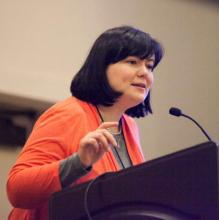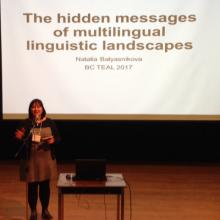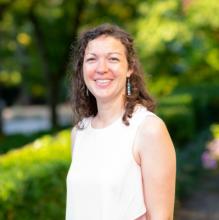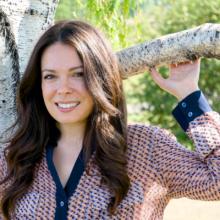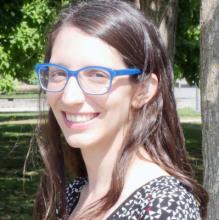Natalia is a language educator, researcher, and community volunteer. Focusing on narrative as unit of analysis Natalia’s research seeks to understand how older adults experience language learning and what communities can do to better accommodate seniors' needs.
Research Description
Over the past ten years, seniors who speak English as an additional language have made a significant group in the B.C. immigrant population. About a half of all the senior immigrants in Canada live in major metropolitan areas, such as Vancouver. Despite being the largest urban center of the province, Vancouver is lacking English language programs that cater to seniors, in terms of accessibility, outreach, and facilities which increase social connections. Through close examination of seniors’ learning and life-course narratives, my research highlights the value of language learning in the lives of seniors and draws attention to older adult language learners’ needs. The aim of my work as a researcher and a volunteer in the community is to support community initiatives that enhance the practice of teaching the English language to diverse groups, and specifically seniors.
What does being a Public Scholar mean to you?
Being a public scholar means that my work positions community stakeholders and scholars as equal partners. For me personally, it also means being committed to the needs of the communities that welcomed me as a researcher and giving back by supporting community initiatives in any way I can.
In what ways do you think the PhD experience can be re-imagined with the Public Scholars Initiative?
Public Scholars Initiative recognizes those graduate students who aspire to make an impact in the real world. It showcases the work that blends traditional scholarship and community engagement, innovative approaches to research and rigorous academic standards, advocacy and insightful reflection.
How do you envision connecting your PhD work with broader career possibilities?
I hope that my teaching experience, research qualifications and community connections will be useful across various organizations that aim to help seniors and other adult immigrant language earners gain traction in a changing world.
How does your research engage with the larger community and social partners?
As a community-based researcher I advocate for collaborative work on all stages of research. I have spent the last four years working side by side with community members, cultivating relationships and taking time to support various projects in Vancouver's Downtown Eastside. Going further, I aim to extend my community engagement into advocacy for community-responsive curricula that respect the needs of older adult learners.
Why did you decide to pursue a graduate degree?
As an English language teacher in Russia I had a desire to enhance my practice drawing on published research, however I encountered significant barriers in accessing internationally-produced scholarship. Having experienced such barriers to access, I was challenged to pursue avenues where I could work towards creating meaningful relationships between research and the practitioner communities. I wanted to pursue a graduate degree and ensure that high quality research is accessible to practitioners across the world.
Why did you choose to come to British Columbia and study at UBC?
My main reason for choosing the UBC Faculty of Education was that it is a global leader in pedagogical research, attracting outstanding scholars from all over the world. I knew that here I would be encouraged to do my best and supported in achieving my goals. Once I was accepted to the program there was no doubt in my mind that I had made the right choice.
I hope to make a difference by seeing the transformation of educational practices. To achieve this goal I work on translating my research into meaningful practice though workshops, media engagement, teacher training and arts-based outreach.

